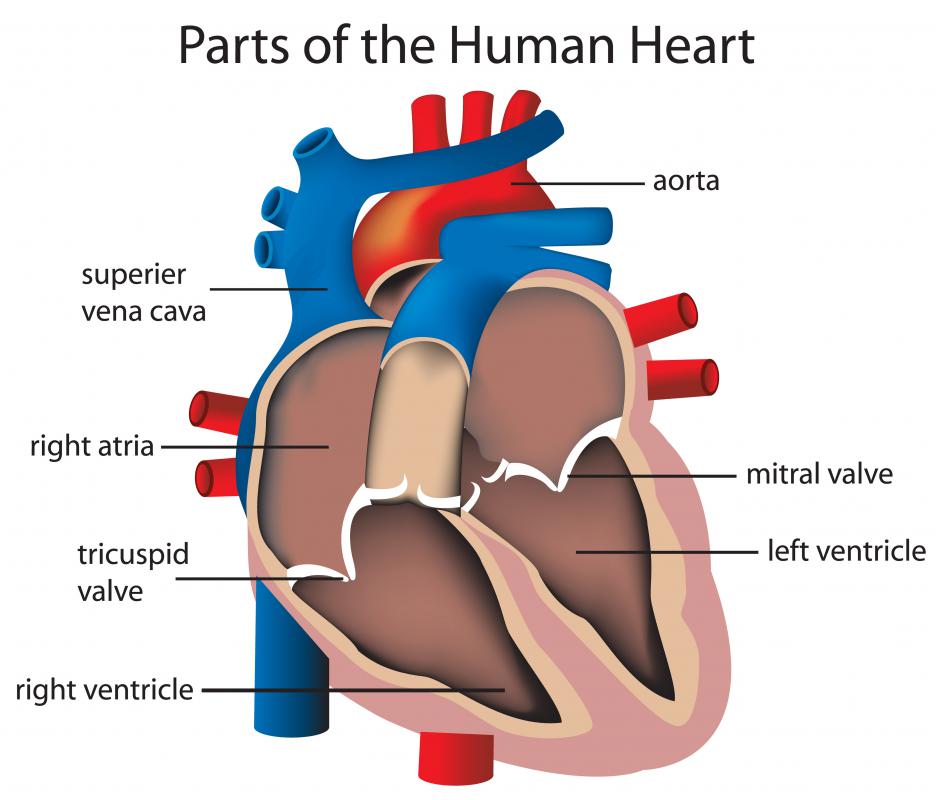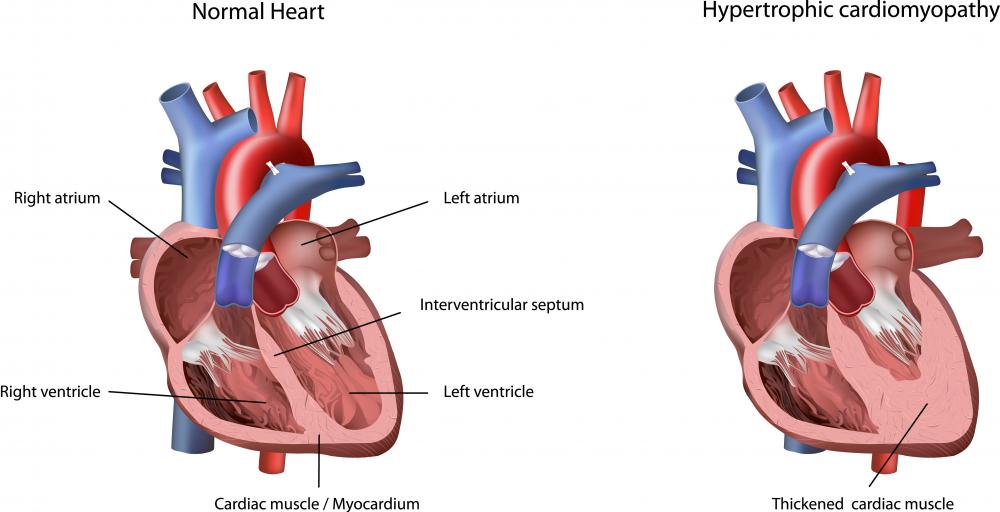At TheHealthBoard, we're committed to delivering accurate, trustworthy information. Our expert-authored content is rigorously fact-checked and sourced from credible authorities. Discover how we uphold the highest standards in providing you with reliable knowledge.
What are Different Types of Heart Sounds?
Every living heart makes sounds. The sounds come from the bicuspid/mitral valves, the tricuspid valves, and the aortic valves. As these valves contract and relax, allowing blood flow to and from the heart, they produce the heartbeat sound. A healthy heart beats in a continual rhythm. There are a variety of abnormal heart sounds, some of which are harmless, while others can indicate serious heart problems.
The healthy, normal rhythm of the heart makes a lub dub sound. The lub is the first part of the heartbeat, also known as S1. The dub is the second half of the heartbeat, also known as S2. The S1 heart sound occurs when the bicuspid/mitral and tricuspid valves contract and close in order to keep the blood flowing in one direction.

Once these valves are closed, there is enough pressure in the left and right ventricles to force the blood flow back into the body through the aortic and pulmonary valves. When the ventricles are emptied and the pressure is lowered, the aortic and pulmonary valves close. The closing valves cause the S2 heart sound.
The S3 heart sound is less common than the S1 and S2. This sound is caused by blood-flow turbulence. Normally, blood flows silently through the body, but the pressure within the heart can cause the blood to oscillate inside the ventricle walls. The S3 sound can be heard with a stethoscope shortly after the S2 sound. It is normal to hear this heart sound in people under 40, but it may indicate a problem in people 40 and older.

One of the more rare heart sounds is the S4. This sound, if present, can be heard just before the S1. The S4 is sometimes present in healthy heartbeats of children and athletes, but usually is a serious indication of health problems. The sound is caused by the forceful contraction of the atria in order to push blood flow past stiff or hypertrophic ventricles. S4 is symptomatic of post-MI fibrosis, a throttled left ventricle, and hypertrophic cardiomyopathy.

Another example of heart sounds are clicks. There are a few different causes of clicking heart sounds. Clicks usually occur as a result of a short lapse in the functioning of the pulmonary valve. This is another example of an abnormal heart sound that is sometimes harmless, but can be an indicator of a serious problem. The different types of clicks are the aortic ejection click, the pulmonic ejection click, and the midsystolic click.

Heart murmurs are one of the most common types of abnormal heart sounds. Heart murmurs, like the S3 sound, are caused by blood turbulence through the heart valves. Murmurs are often heard as a swishing or whistling sound in the heart. There are many variables to consider when trying to find the cause of a heart murmur. An ECG is the best way to find the exact cause.

An occasional heart murmur is usually no cause for concern and is considered a sort of hiccup in the heart. A person experiencing heart murmurs may want to play it safe and get a check-up because it can be an indicator of a more serious problem. Some serious causes of heart murmurs include heart attack, high blood pressure, and anemia.
AS FEATURED ON:
AS FEATURED ON:
















Discuss this Article
Post your comments